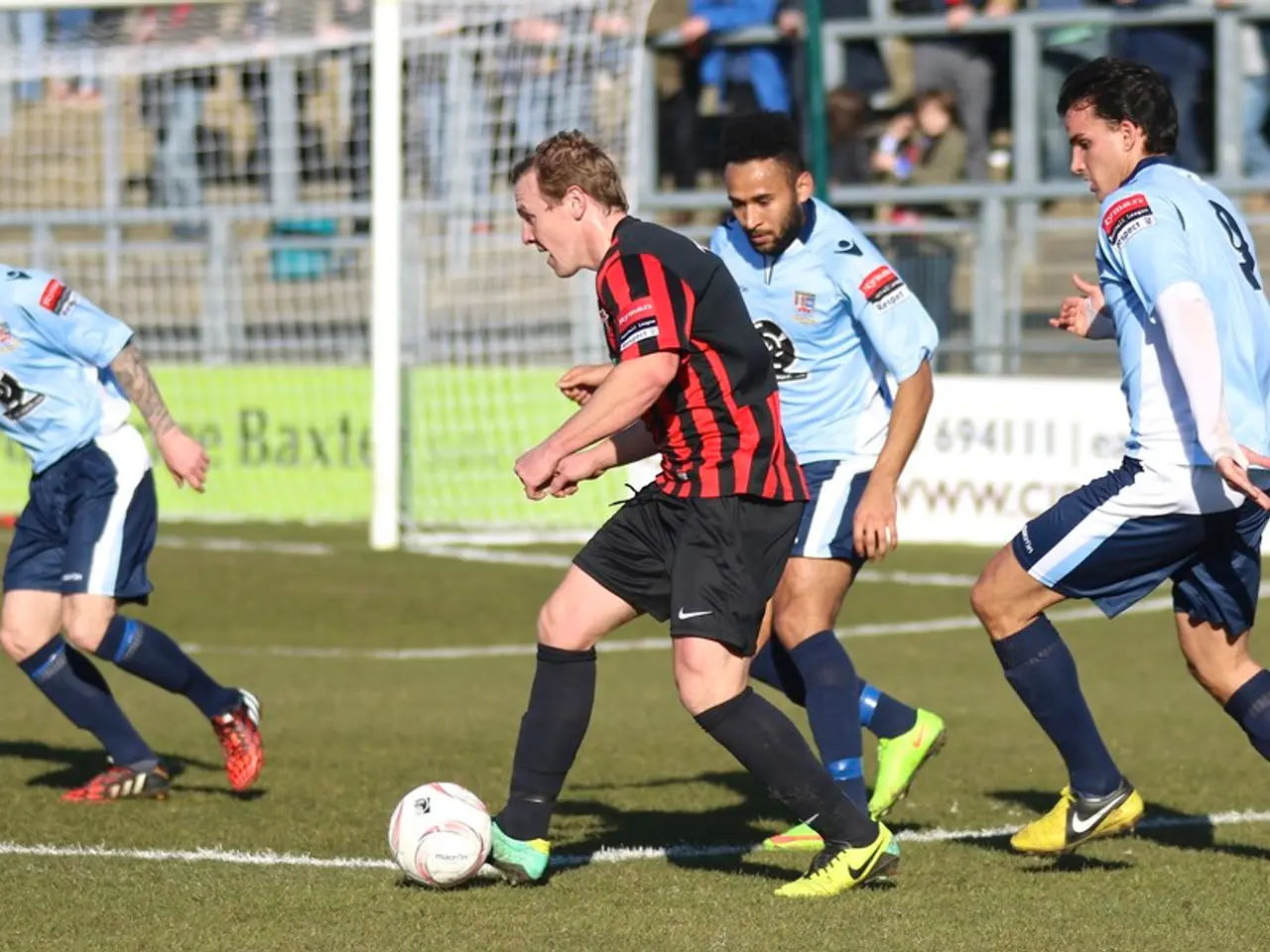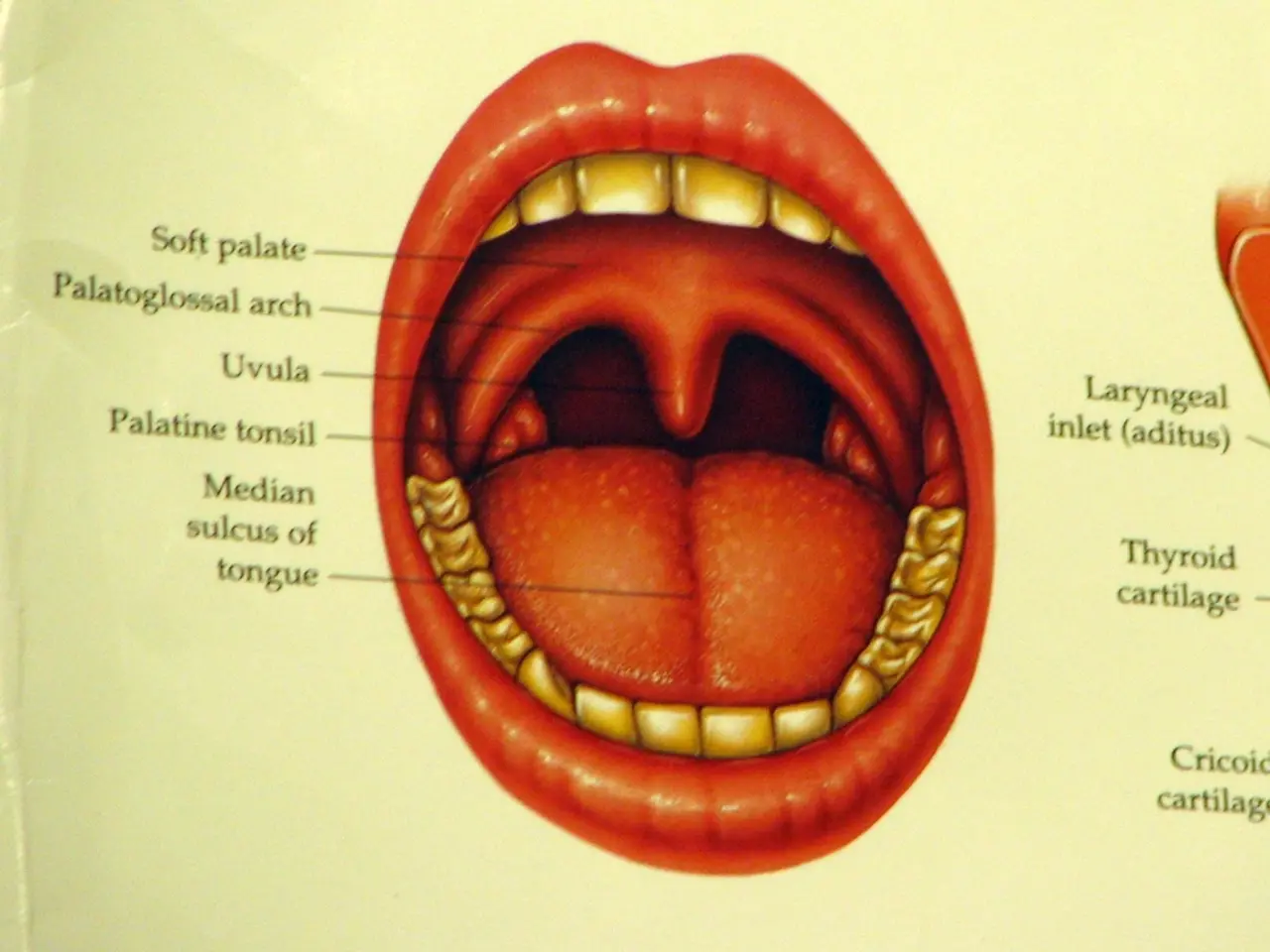"Women are shown a lack of regard"
Germany's women's football team is facing a pivotal moment, boasting a rich history, exceptional talent, and unwavering spirit, yet needing structural investment, media strategy, and player welfare improvements to close the gap with the world's best and secure its position as a football powerhouse.
The recent UEFA Women's Euro 2025 campaign highlighted the fragility of player availability due to injuries and suspensions, with key losses such as captain Giulia Gwinn's injury in the first match, leaving the team repeatedly down to ten players and forced to adapt under pressure. Such disruptions not only affect performance but also undercut the sense of team stability and leadership continuity.
The team's success is challenged by inconsistent quality in attack and a reliance on defensive resilience and goalkeeping. The team's reliance on mentality and fighting spirit, as noted by coach Christian Wück, points to a gap in technical and tactical consistency at the highest level.
Despite Germany's historic success in women's football, the sport continues to struggle for broader public and media attention compared to the men's game. High-profile coverage, such as Chancellor Friedrich Merz’s social media reactions, does occur but remains sporadic rather than systematic, and political leaders’ attendance at matches is still treated as noteworthy rather than routine.
To address these challenges, several solutions have been proposed. Investing in youth academies and coaching pathways to deepen the talent pool is critical. Encouragingly, players like Jule Brand and Sjoeke Nüsken have emerged as leaders when called upon, but more consistent development programs would provide greater depth and flexibility in the face of injuries or suspensions.
Improving access to sports medicine, injury prevention programs, and psychological support can help minimize the impact of injuries and suspensions. Clubs and the national federation must prioritize player welfare to ensure squads are as fit and available as possible for major tournaments.
The Frauen-Bundesliga and DFB (German Football Association) need continued investment to increase professionalization, including better salaries, facilities, and media contracts. This would raise the standard of the domestic league and improve the national team’s pipeline.
A concerted effort is needed to increase the visibility of women’s football through broadcast deals, digital platforms, and community engagement. Highlighting matches, players, and stories can help normalize women’s football as a mainstream entertainment product and attract more fans and sponsors.
The federation must maintain strong leadership and adapt quickly to challenges, as seen with the captaincy passing from Gwinn to Janina Minge and then to Nüsken during Euro 2025. Clear communication, contingency planning, and fostering a culture of resilience are essential.
Women in football often have to balance their football careers with school and apprenticeships. The lack of financial resources in women's professional football results in the loss of potential talents. Licensing requirements for professional leagues could mandate that every club runs a women's and girls' department. Unlike men, women in youth football and below the Bundesliga do not earn money. Financial incentives, such as subsidies for clubs with successful women's departments, could be created to make promoting women's football more profitable for clubs.
Kathrin Längert, a former Bundesliga player and now coach, has experienced instances of harassment and prejudice as a girl in football. She has worked as a coach in the first Saudi Arabian women's national team and in the youth department of SGS Essen. Längert is an advocate for improving conditions in women's football and has written a book titled "We Deserve More".
Men's professional clubs are increasingly investing in women's football, with Union Berlin being an example. Cities and municipalities are responsible for providing sports facilities for girls, while the DFB can create regulations and incentives for clubs with girls' teams.
The national women's football team in Germany serves as a flagship and a source of visibility. Success in the league for the women's team is closely linked to the success of the national team. However, unlike the men's team, the women's team often faces a lack of respect and questioning when performance is poor. Many women's football players in the Bundesliga have to consider returning to their previous jobs due to lack of financial compensation. The football pitch can be intimidating for both girls and women players and coaches.
In conclusion, Germany's women's football is at a turning point, requiring comprehensive changes to ensure its continued growth and success. By addressing the challenges of injuries and suspensions, inconsistent attack and defense, media and public visibility, professionalization, leadership continuity, and providing equal opportunities, Germany can cement its position as a leading force in women's football.
The call for improvement in women's health-and-wellness, particularly in relation to sports, is evident in the need for better sports medicine, injury prevention programs, and psychological support for the German women's football team. This, in turn, could minimize the impact of injuries and suspensions, such as captain Giulia Gwinn's, on the team's performance and stability.
Another area where science can play a crucial role is in the development of the team's attacking strategies. The current inconsistency in attack and overreliance on defense could be addressed through rigorous analysis and scientific approach to tactical and technical development.
Lastly, focusing on women's health-and-wellness extends beyond the sports field. Issues like the financial struggles faced by women in football, such as lack of compensation and resources in youth football, can deter potential talent and hinder the growth of the sport. Providing equal opportunities in finance, facilities, and media contracts, as in the case of the men's game, could help attract and retain more talent in women's health-and-wellness and sports.




